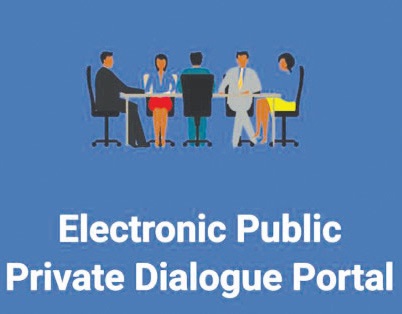
The Ethiopian government, long criticized for its limited platforms to engage in dialogue with the private sector, is addressing these concerns by introducing digital platforms aimed at facilitating public-private communication.
Traditionally, direct meetings with government officials have been the primary means of engagement for private investors. However, this approach has faced significant criticism for its limited scope, accessibility, and inclusiveness. Investors have often expressed frustration over the lack of alternative mechanisms to ensure broader and more effective communication.
International Sales Director of the Czech company APIMOSO,Lukas Sastak, shared his concerns with The Ethiopian Herald, citing the inconvenience that he and many business representatives face in securing direct meetings with Ethiopian authorities. “They may be busy with several agendas, but there should be alternative platforms to engage with those who need direct discussions,” he said. Similar sentiments have been echoed in multiple business forums, reflecting the frustrations of numerous stakeholders who seek to contribute to Ethiopia’s economy but are discouraged by logistical challenges.
In response to these longstanding criticisms, the Ethiopian government has launched an electronic public-private dialogue platform. This initiative, administered by the Ministry of Trade and Regional Integration (MoTRI) in collaboration with the Ethiopian Chamber of Commerce and Sectorial Association (ECCSA), was made possible through financial support from the European Union and GIZ, according to a MoTRI report.
The report describes the platform as a supportive strategic communication system aligned with Ethiopia’s broader economic reform agenda, which prioritizes the private sector as a critical driver of economic growth.
This week, MoTRI and ECCSA formalized their collaboration by signing a Memorandum of Understanding (MoU) to enhance the platform’s functionality and accessibility. Speaking at the signing ceremony, MoTRI State Minister Abdulhakim Mulu (PhD) explained that the platform is designed to address systemic challenges in the public-private dialogue process. He emphasized that the government’s economic reforms, aimed at boosting private sector participation, require actionable strategies to ensure effective implementation.
“The government has reformed economic policies to favor the private sector. These reforms require platforms that can facilitate seamless and inclusive communication between the government and private entities,” the State Minister said. He further noted that the platform would enable local and international investors to engage directly with Ethiopian officials, making investment negotiations and economic forums more efficient.
The platform’s inclusivity and scalability are particularly noteworthy. Abdulhakim highlighted that it allows stakeholders from across the globe to participate in discussions, submit business issues, and receive timely updates from government institutions. “Using this platform, several investors from different countries can meet with government officials. It enables economic forums and investment negotiations to take place seamlessly. This platform is crucial not only for discussions but also for reaching stakeholders effectively and efficiently,” he added.
ECCSA President Sebsib Abafira lauded the MoU as a milestone in improving the quality of public-private dialogues in Ethiopia. He described the electronic platform as a transformative tool that centralizes communication and enhances transparency, accountability, and participation among stakeholders. “The platform serves as a centralized hub for submitting business issues, legal briefs, comprehensive reports, and updated decisions from government institutions. It is a vital tool for fostering transparency, accountability, and active participation among stakeholders,” he noted.
Beyond its role in facilitating dialogue, the platform is also expected to support capacity-building initiatives. Experts believe it will provide a robust framework for training, information sharing, and fundraising for economic programs. ElieSawaya, an electronic governance expert at the Business Environment and Investment Climate (BEIC), emphasized that the platform is a foundation for future collaborations and agreements. “Through the electronic portal, it is possible to provide trainings, share information, and raise funds for initiatives. This platform is a steward for establishing further agreements and fostering collaboration,” he remarked.
With the platform now operational, stakeholders hope it will serve as a catalyst for increased collaboration, transparency, and investment.
BY YESUF ENDRIS
THE ETHIOPIAN HERALD THURSDAY 19 DECEMBER 2024





